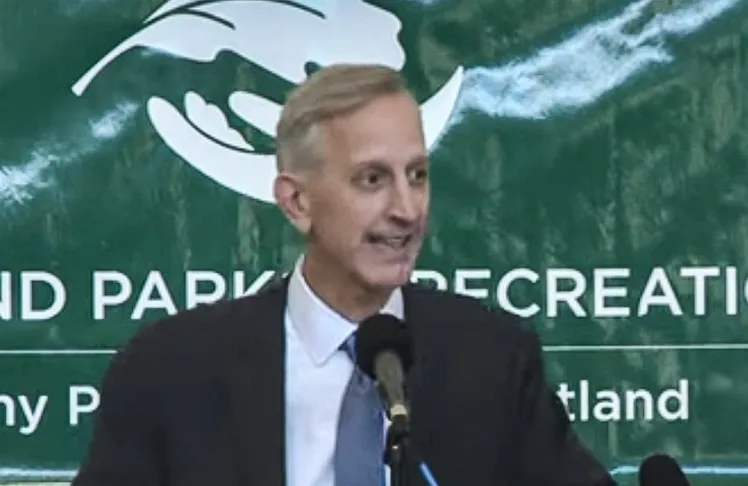
Portland is on the brink of a significant political shift, set to introduce a revamped government structure in January featuring a 12-member council, a city administrator, and a reimagined mayoral role. Mayor-elect Keith Wilson, who campaigned on a promise to eradicate unsheltered homelessness, emerged victorious in the November 5 election. His win marks a notable moment in Portland’s history, as he is the first mayoral candidate since Bud Clark in 1984 to be elected with solely a business background and no prior political experience.
Emphasizing his outsider status as a strength, Wilson believes it will enable him to introduce innovative solutions. A key promise of Wilson’s campaign is to eliminate unsheltered homelessness within a year, leveraging his experience from founding a nonprofit shelter in Portland and drawing inspiration from successful policies in other cities. Raised in North Portland, Wilson holds a business administration master’s degree from the University of Portland and leads Titan Freight Systems, the state’s pioneering fossil fuel-free trucking company.
The issue of homelessness is particularly personal for Wilson, whose brother faced homelessness two decades ago and whose sister battled addiction. He recognizes that many families in Portland share similar challenges, often without the resources he had. Wilson aims to ensure that an emergency shelter bed is available for everyone in need, which would allow for the enforcement of no-camping laws. He believes that effective enforcement may require the threat of arrest, but he disputes the notion that some individuals prefer not to have shelter.
Following his election, Wilson reached out to commissioners Dan Ryan, Mingus Mapps, and Rene Gonzalez, urging them to reconsider a plan to withdraw the city’s support and funding for Multnomah County’s Joint Office of Homeless Services. He views the current agreement as largely effective, citing promises of 1,000 shelter beds and 150 treatment beds, while stressing the need to eliminate unsheltered camping entirely. He criticized the county’s practice of distributing tents and tarps, hoping that his initiatives will render such measures unnecessary.
Reflecting on his journey from underdog to mayor-elect, Wilson attributes his success to the clarity of his campaign message and his persistent outreach to the community, noting that the city’s transition to ranked-choice voting also played a role in extending the campaign period.
In addition to addressing homelessness, Wilson is committed to reducing carbon emissions, aspiring for Portland to achieve the lowest carbon footprint in the nation. He sees the city’s Clean Energy Fund as a solid foundation for this goal and advocates for increased opportunities for homes and multifamily units to transition to zero-emission electric systems.















